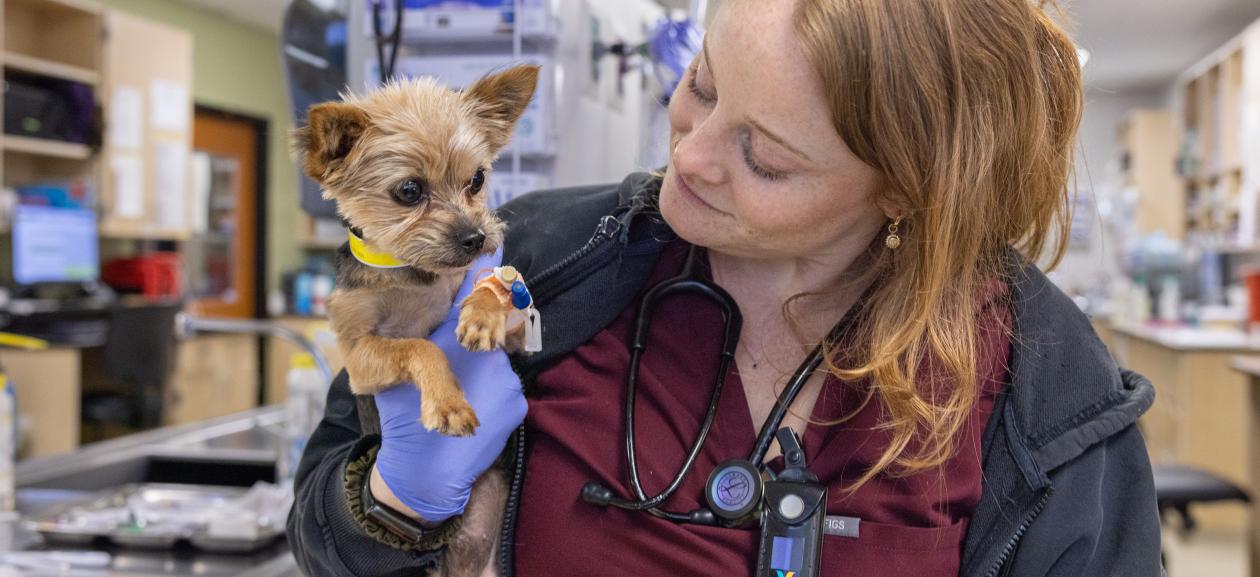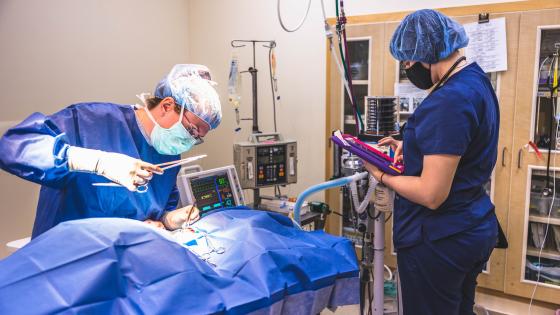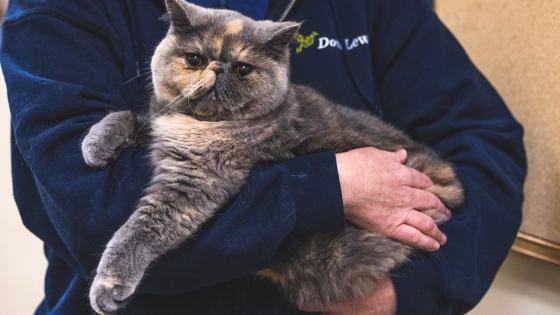
Myths & Facts About Cancer in Pets
A cancer diagnosis in your pet can feel overwhelming. It’s natural to look for information, but unfortunately, there are a lot of myths out there that can cause confusion or even unnecessary worry. Here’s a clear look at some common misconceptions so you can make informed decisions about your pet’s health.
Myth 1: "A cancer diagnosis always means my pet has little time left."
Fact: A diagnosis doesn’t automatically mean the end. Many cancers can be treated effectively, and with the right care, pets often continue to enjoy months or even years of a happy, comfortable life.
Myth 2: "If my pet seems fine, I can delay treatment."
Fact: Even if your pet appears healthy, some cancers can progress quickly. Early detection and treatment give the best chance for successful outcomes—surgery is generally easier with smaller tumors, and chemotherapy or radiation is often more effective in the early stages. Even when cancer is more advanced at diagnosis, there are still options to keep your pet comfortable and happy, including palliative care, supportive therapies, and treatments aimed at maintaining quality of life. Addressing cancer while your pet is feeling well can improve their response to therapy and help them enjoy more time with your family.
Myth 3: "Chemotherapy will make my pet sick all the time."
Fact: Many pets tolerate chemotherapy very well. Side effects are usually mild, and most pets continue to enjoy daily activities. The goal of chemotherapy is to maintain the quality of life for as long as possible. If side effects do occur, they tend to be temporary and resolve within a few days.
Myth 4: "Pets can't get skin cancer."
Fact: Pets—especially those with light-colored or thin coats—can develop skin cancers like melanoma or squamous cell carcinoma. Regularly checking your pet’s skin for lumps or sores can help catch problems early.
Myth 5: "A biopsy will cause the cancer to spread."
Fact: Biopsies are a safe and essential tool for diagnosing cancer and guiding treatment. When done correctly, they do not spread the disease.
Myth 6: "If my pet is old, they shouldn't undergo cancer treatment."
Fact: Age alone doesn’t rule out treatment. Many older pets benefit from therapies that improve quality of life, mobility, and comfort, helping them enjoy more time with their families. A full health assessment helps determine what’s best for your pet.
Myth 7: "If my pet has cancer, there’s nothing I can do."
Fact: There are many treatment options for pets with cancer, ranging from surgery and chemotherapy to targeted therapies and palliative care. Early consultation with a veterinary oncologist can help you find the best plan for your pet.
Myth 8: "Only older pets get cancer."
Fact: Cancer is more common in older pets, but younger animals can develop it too. Certain breeds or genetic factors may increase the risk, so it’s important to monitor pets of all ages for changes in health or behavior.
Myth 9: "Only certain breeds get cancer."
Fact: Cancer can affect any breed, any age, or any size of pet. That said, some breeds are more prone to certain types of cancer:
- Golden Retrievers and Labrador Retrievers: more likely to develop lymphoma or a type of blood vessel cancer called hemangiosarcoma
- Boxers: prone to skin tumors (mast cell tumors) and lymphoma
- German Shepherds: higher chance of blood vessel tumors (hemangiosarcoma) and bone cancer (osteosarcoma)
- Doberman Pinschers: more likely to get lymphoma or bone cancer
- Scottish Terriers: higher risk of bladder cancer
Even with breed predispositions, any pet can develop cancer, so regular veterinary check-ups and monitoring for changes in behavior, lumps, or appetite are important for all pets.
Myth 10: "Alternative therapies can replace conventional treatment."
Fact: Some complementary therapies (like acupuncture, massage, or certain supplements) can help manage pain or support well-being, but they do not replace surgery, chemotherapy, or radiation when those treatments are needed.
What You Can Do
If you notice any unusual signs—lumps, changes in appetite, energy, or behavior—contact your veterinarian. Early detection and intervention can make a big difference in outcomes and quality of life.
At DoveLewis, our oncology team provides compassionate, individualized care for pets and guidance for families. We work with you to create treatment plans that prioritize your pet’s comfort, well-being, and everyday happiness. Cancer can be scary, but with support and expertise, you and your pet don’t have to face it alone.



